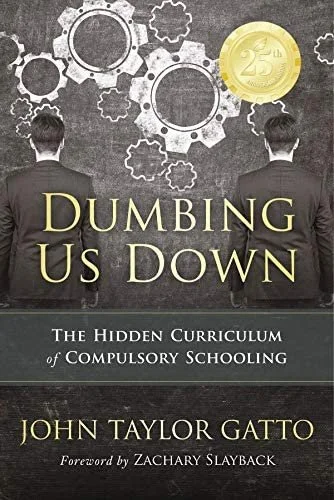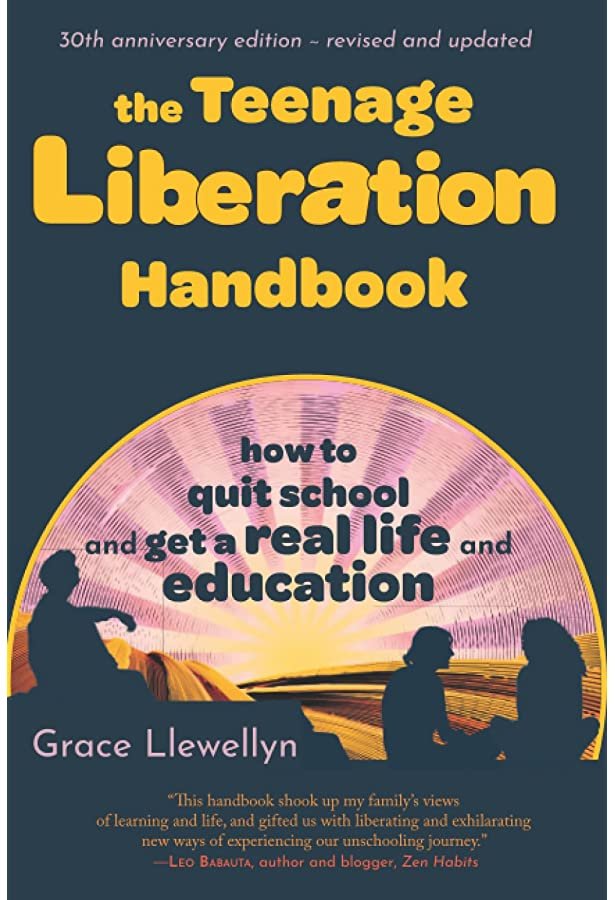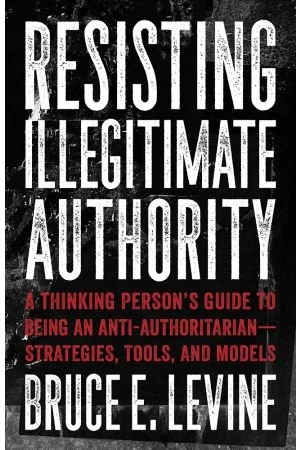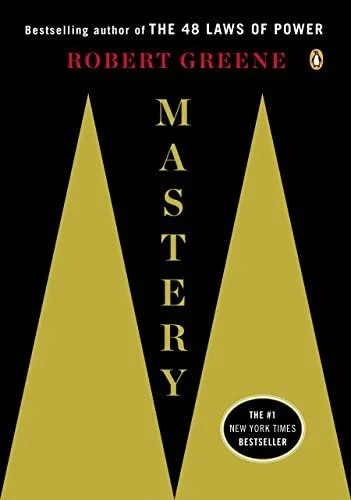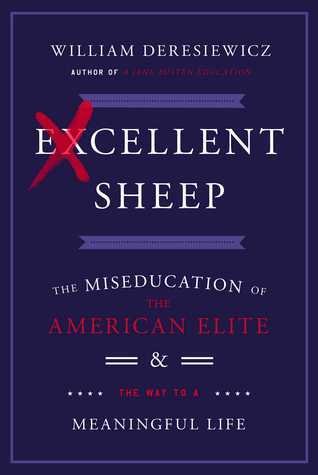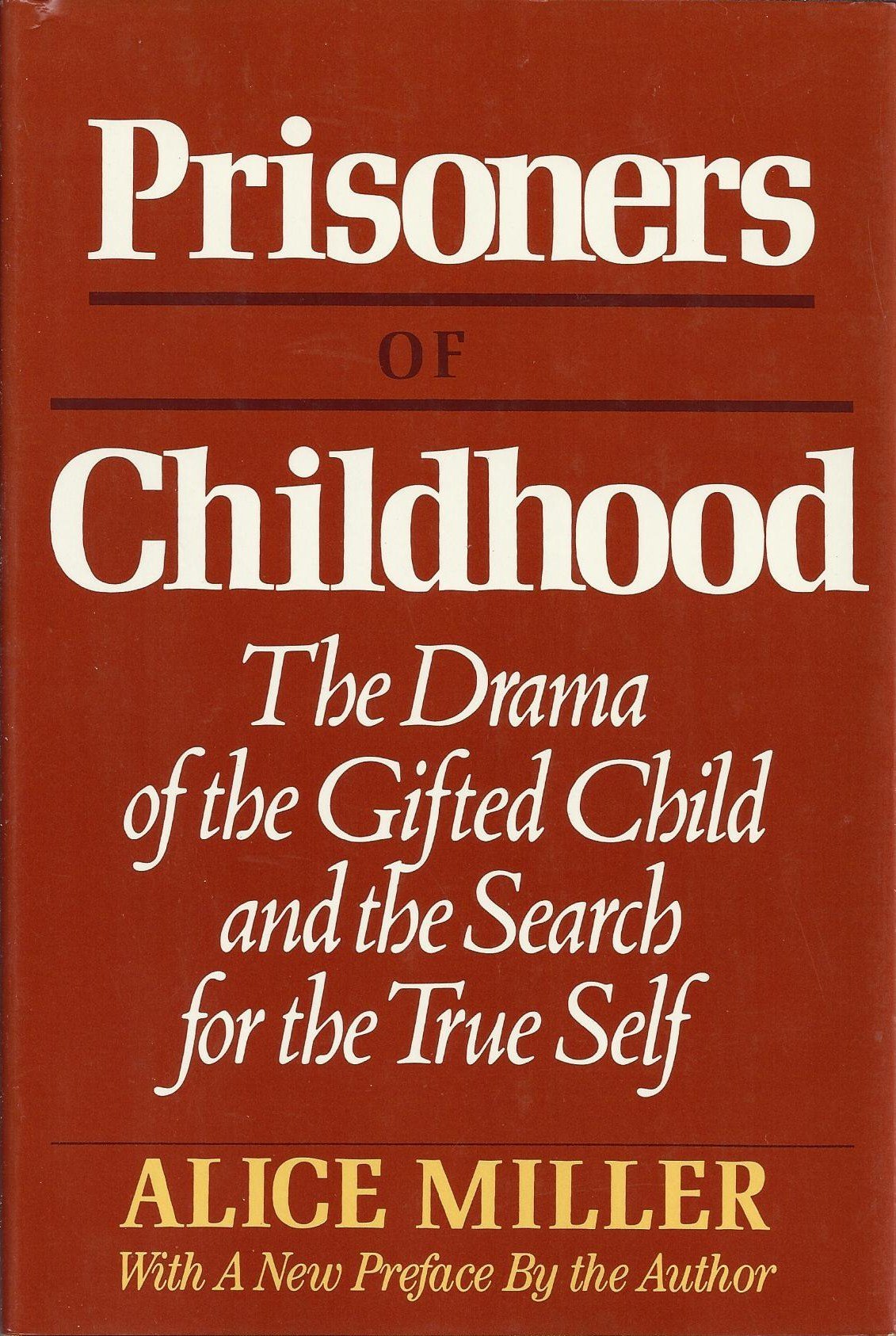Best Books For Alienated Young People
It’s a cliche, but when we’re young, we’re trying to figure out who we are and find our purpose in the world. Though challenging, this can be incredibly exciting and profound. Unfortunately, we often have the added challenge of being in a coercive, authoritarian environment that forces us off of this path. While this changes somewhat when we turn 18, we’ve still been deprived of the tools and support that we needed.
In our society, what passes as “help” for alienated young people is often really just authoritarianism, in my opinion (often shrouded in pseudo-progressive rhetoric). The adults with power in the situation are most concerned with controlling the young person and suppressing their difficult feelings, unable or unwilling to conceive of any kind of help beyond this. They don’t know how to defer their own egos to make room for what’s truly in the teenagers’ interest. When threatening them just makes matters words, rather than reflecting on themselves, the adults revert back to their authoritarian playbook.
As alienated young people, the resources that our society offers us by default are psychiatric medication, psychiatric labeling, mental health professionals that often aren’t really on our side, and behavior modification (essentially, animal training). This all might pacify us and makes us easier to control, but as far as the realization of our potential is concerned, it’s totally counterproductive.
When this is the norm in our society, it can be incredibly difficult to find resources that we truly like and find genuinely helpful. Over the years, I’ve collected some great resources that I wish I had as an alienated young person. For me, they would have been the refuge that I needed from an alienating environment.
Here are what I think are the best books for alienated young people:
Dumbing us Down By John Taylor Gatto
When a person expresses their hatred of the school system, they are often pathologized, punished, and told in so many words that they are a loser. This book validates that aversion to the school system, showing us that conventional schooling is not really about educating us and developing our minds but is, in fact, tremendously harmful. Gatto, having worked as a public school teacher for decades, argues that conventional schooling robs young people of their agency, creativity, and potential. The book starts off with Gatto’s famous essay, The Seven Lesson Schoolteacher which you can read for free here.
“School is a twelve-year jail sentence where bad habits are the only curriculum truly learned. I teach school and win awards doing it. I should know.”
“No one believes anymore that scientists are trained in science classes or politicians in civics classes or poets in English classes. The truth is that schools don't really teach anything except how to obey orders.”
“The lesson of report cards, grades, and tests is that children should not trust themselves or their parents but should instead rely on the evaluation of certified officials. People need to be told what they are worth.”
“Whatever an education is, it should make you a unique individual, not a conformist; it should furnish you with an original spirit with which to tackle the big challenges; it should allow you to find values which will be your roadmap through life; it should make you spiritually rich, a person who loves whatever you are doing, wherever you are, whomever you are with; it should teach you what is important, how to live and how to die.”
“What's gotten in the way of education in the United States is a theory of social engineering that says there is one right way to proceed with growing up.”
“I began to realize that the bells and the confinement, the crazy sequences, the age-segregation, the lack of privacy, the constant surveillance, and all the rest of the national curriculum of schooling were designed exactly as if someone had set out to prevent children from learning how to think and act, to coax them into addiction and dependent behavior.”
“The children I teach are uneasy with intimacy or candor. They cannot deal with genuine intimacy because of a lifelong habit of preserving a secret inner self inside a larger outer personality made up of artificial bits and pieces of behavior borrowed from television or acquired to manipulate teachers. Because they are not who they represent themselves to be, the disguise wears thin in the presence of intimacy; so intimate relationships have to be avoided.”
2. The Teenage Liberation Handbook By Grace Llewellyn
If we can’t rely on school to actually educate us, what should we do instead? The Teenage Liberation Handbook is an incredibly rich, comprehensive resource that answers this very question. I think of it as the “whole earth catalog” of self-education. This book is especially useful if we don’t have many adults in our lives that we trust to help us navigate our intellectual and professional lives. School, I think, makes us feel disempowered and bewildered with regard to navigating the world (which makes us dependent on external authorities, which is probably the point). This book does just the opposite, showing us how to take full responsibility for our own learning.
Here is an excerpt from what, for me, is the most moving chapter of the book (Ch.5: “The Power and Magic of Adolescence vs. The Insufferable Tedium of School”):
“It’s no accident, I’m sure. The way our society is set up now, something’s got to prevent visionary experience. People who are fully and permanently awakened to the wildness and beauty in and around them make lousy wage-slaves. People who are not distracted by a wellspring of yearnings can briskly assemble automobiles, or focus their intellects on monthly sales charts.
And unawakened people are less likely to question the things in our society which are horrifically dull, ridiculous, or wrong. The point of visionary experience is to see. When vision comes, eternity is its black velvet backdrop. Everything else comes out on the stage to sing and dance. Some of it fits in with the grandeur of that backdrop, and some of it only clashes, looking ugly and cheap. You end up wanting to adjust your life so that it’s full of stuff that fits in with eternity, and not crammed with things that don’t matter.
Perhaps one reason some cultures confidently guide their young toward vision is that they’re not worried. They don’t expect anybody’s vision to reveal anything horrible about the society itself. If there is something going wrong with the cultural state of affairs, maybe they want to know, so they can fix it.
But when you have a dirty house, you don’t offer a magnifying glass to your guests. You probably don’t even open the curtains and let in the light. If we did teenaged visions, democracy would get a boost — but consumerism, injustice, and other ignobilities would take a dive. We would see that far too much of what we accept as “reality” is a blasphemy against true reality. Maybe we don’t invite our young to seek visions because those visions would disrupt the status quo and force an uncomfortable change.”
“School is not the only bad guy in the war against whole adolescence, that’s true. But it is our culture’s primary substitute for more potent experiences. It is the way we take your time so you don’t explore your own inklings of truth. It is where you learn to be passive instead of proactive. Quitting school won’t guarantee you a healthy, passionate, adventurous youth — but it just might remove the biggest obstacle to that birthright.”
3. Resisting Illegitimate Authority by Bruce E. Levine
As the school system exerts authoritarian control over our intellectual lives, the mental health industry often exerts authoritarian control over our emotional and spiritual lives. This is especially true if you were one of those young people that resisted the school system (in one way or another) and then were given a dubious psychiatric diagnosis and forced to take medication.
Dr. Bruce Levine, a clinical psychologist, has been writing about authoritarianism in the mental health industry for decades. While this courageous book covers these issues in great detail, it’s also a comprehensive resource for those who find themselves opposite illegitimate authorities, which is, sadly, many young people.
“Today, a potentially huge number of young anti-authoritarians are being depoliticized by mental illness diagnoses and by attributions that their inattention, anxiety, depression, and disruptiveness are caused by defective biochemistry - and not by their alienation from a dehumanizing society and their resistance to illegitimate authorities.”
“Many young people labeled with psychiatric diagnoses are essentially anti-authoritarians who are pained and angered by coercion, unnecessary rules, and illegitimate authority.”
“Professionally, I have worked with kids for whom the coercions of parents, teachers, and other adults failed to control behaviors but succeeded in creating resentments. These kids, like me, were not going to allow adults to use knowledge of their joys and pains for purposes of control, so they learned to hide their true joys and pains. They learned to be guarded about their true self so as it would not be used against them. Some kids learn that it’s easier to hide themselves from the adult world if their hide from themselves, and so these kids lose awareness of who they are - and some of them need to, later in life, “crack up” for rediscovery.”
“Alienated anti-authoritarian adults are often diagnosed with anxiety and depression. Often a major pain of their lives that fuels their anxiety and/or depression is fear that noncompliance with illegitimate authorities will cause them to be financially and socially marginalized; but they fear that compliance with such illegitimate authorities will result in humiliation and loss of integrity. All this can result in anxiety and depression—created not by biochemical defects but by existential realities.”
4. Mastery by Robert Greene
Even as a teenager and young adult, much of the career advice circulating around me struck me as unhelpful and even dangerous. It seemed like it was leading many of us down the wrong path and we would pay for it later. And yet it was difficult not to follow this advice when I didn’t have a better roadmap for building my career and life.
Often directly contradicting such advice, Mastery offers the closest thing to that roadmap that I was always looking for. If I knew about it when I was 18, it would have been my north star. Fundamentally this book is a highly original guide for how to build a successful career, filled with stories of the most accomplished luminaries of modernity. It’s miles apart from other self-help books in every sense. What I appreciate most about it is that it shows us that our work can be a path for deep personal and spiritual transformation.
“Too often we make a separation in our lives—there is work and there is life outside work, where we find real pleasure and fulfillment. Work is often seen as a means for making money so we can enjoy that second life that we lead. Even if we derive some satisfaction from our careers we still tend to compartmentalize our lives in this way. This is a depressing attitude, because in the end we spend a substantial part of our waking life at work. If we experience this time as something to get through on the way to real pleasure, then our hours at work represent a tragic waste of the short time we have to live.”
“At your birth a seed is planted. That seed is your uniqueness. It wants to grow, transform itself, and flower to its full potential. It has a natural, assertive energy to it. Your Life's Task is to bring that seed to flower, to express your uniqueness through your work. You have a destiny to fulfill. The stronger you feel and maintain it--as a force, a voice or in whatever form-- the greater your chance of fulfilling this Life's Task and achieving mastery.”
“Those qualities that separate us are often ridiculed by others or criticized by teachers. Because of these judgments, we might see our strengths as disabilities and try to work around them in order to fit in. But anything that is peculiar to our makeup is precisely what we must pay the deepest attention to and lean on in our rise to mastery.”
“You must understand the following: In order to master a field, you must love the subject and feel a profound connection to it. Your interest must transcend the field itself and border on the religious.”
5. Excellent Sheep By William Deresiewicz
This book critiques the childhood rat race that young people are pressured into, with a focus on college education. It starts with the author’s observation that many of our elite college students today, while “impressive”, are “anxious, timid, and lost, with little intellectual curiosity and a stunted sense of purpose.” If you come from an environment in which it’s “Yale or jail”, this book may be a much-needed corrective.
Most importantly, Excellent Sheep provides totally different ways of thinking about our life than most of what our society offers young people. It emphasizes the importance of building “a self” which is, “something there that, when the world pushes against you, is capable of pushing back." This book changed my life in my late 20s. I can’t imagine the impact it would have had on me if I had read it when I was actually in college.
“But there is something that’s a great deal more important than parental approval: learning to do without it. That’s what it means to become an adult.”
“You won’t be able to recognize the things you really care about until you have released your grip on all the things that you’ve been taught to care about.”
“The morally courageous person tends to make the individuals around him very uncomfortable. He doesn’t fit with their ideas about the way the world is supposed to work, and he makes them insecure about the choices they themselves made - or failed to make.”
“It takes a willingness to be unpopular, however: independent thinking does, and leadership certainly does. Yet kids today are raised not only in an atmosphere of constant affirmation, but also amid the relentless inculcation of pro-social behavior. We urge them to be team players. We teach them to be cheerful, flexible, and conciliatory, to always seek consensus and compromise. So intent have we become on avoiding painful feelings, both within ourselves and among ourselves, so committed to group harmony, so vigilant against offense, exclusion, confrontation, and other aspects of being human, that we’ve ended up with kids whose edges have been sanded off.”
“In every context, there are questions that you aren’t supposed to ask. The job of a leader, the job of a thinker, is to identify them and ask them. This is where courage comes in. People don’t like it when you challenge the consensus, especially when it’s one that’s so pervasive that they do not even realize that it exists.”
“We like to think of ourselves as a wealthy country, but it is one of the great testaments to the intellectual - and moral, and spiritual - poverty of American society that it makes its most intelligent young people feel that they are being self-indulgent if they pursue their curiosity. You’re told that you’re supposed to go to college, but you’re also told that you are being self-indulgent if you actually want to get an education. As opposed to what? Going into consulting isn’t self-indulgent?”
6. Daniel Mackler’s Youtube Channel
This is not a book, but it’s too important of a resource not to sneak in here. Daniel Mackler is a former psychotherapist who offers ideas on self-healing, breaking out of authoritarian systems, and scathing critiques of the mental health industry. As I was waking up to the truth of my own life history, I found many critiques of psychiatry out there (including its lack of scientific legitimacy and corruption by pharmaceutical industry money), but I didn’t find many critiques of psychotherapists and social workers. Yet I knew on some deep level that I, and people that I knew, had been severely harmed by some of these professionals. Daniel Mackler’s resources were incredibly helpful in validating and connecting to the truth of my experience.
As young people coming out of alienating circumstances, it can be incredibly difficult to then turn to the mental health profession and find that we are paying a lot of money just to be further harmed. Daniel Mackler’s videos are a great resource for psychological and emotional healing.
Here are some of my favorite of his videos:
Why Children Don't Belong in Therapy -- A Former Psychotherapist Speaks
Critique of Borderline Personality Disorder by a Former Psychotherapist
The Difference Between Crazy and Not Crazy -- A Former Therapist Explores
On Anxiety -- Being Passionate and True in a Dishonest World
Comforting the Afflicted and Afflicting the Comfortable — Some Thoughts on the Purpose of Life
To People Who Believe There Is Something Wrong with Them -- Thoughts from a Former Psychotherapist
Being Anti-Authority Versus Anti-Authoritarian — A Psychological Analysis
7. Prisoners of Childhood by Alice Miller
Also called The Drama of the Childhood, this book is revolutionary because it goes against society, the mental health industry, and the world by taking the side of the child. This book argues that, as adults, we are blocked off from our potential, creativity, and wellbeing because we are disconnected from the emotional reality of our childhoods. We idealize our childhoods and our parents to avoid facing their painful reality. And yet, through that pain lies our liberation. We believe that our mistreatment in childhood was for our own good and we are grateful for it, rather than recognizing that it was damaging and continues to rob us of our true selves. Without connecting with this emotional truth, we will forever be prisoners of childhood. This book is incredibly subversive and liberating.
It is my view that those of us who, as alienated children and teenagers, were labeled as “behavior problems” or “disruptive”, were often just more aware of these issues that Alice Miller points out. Because they are painful, we resist the misopedic ideologies that continue to prevail in child-rearing practices, and so we are pathologized “for our own good.”
“Experience has taught us that we have only one enduring weapon in our struggle against mental illness: the emotional discovery and emotional acceptance of the truth in the individual and unique history of our childhood.”
“A child can experience her feelings only when there is somebody there who accepts her fully, understands her, and supports her. If that person is missing, if the child must risk losing the mother's love of her substitute in order to feel, then she will repress emotions.”
“We become free by transforming ourselves from unaware victims of the past into responsible individuals in the present, who are aware of our past and are thus able to live with it.”
“Depression as Denial of the Self Depression consists of a denial of one’s own emotional reactions. This denial begins in the service of an absolutely essential adaptation during childhood and indicates a very early injury. There are many children who have not been free, right from the beginning, to experience the very simplest of feelings, such as discontent, anger, rage, pain, even hunger…”
“No one can heal by maintaining or fostering illusion. The paradise of preambivalent harmony, for which so many patients hope, is unattainable. But the experience of one’s own truth, and the postambivalent knowledge of it, make it possible to return to one’s own world of feelings at an adult level—without paradise, but with the ability to mourn. And this ability does, indeed, give us back our vitality.”
“Often a child’s very gifts (his great intensity of feeling, depth of experience, curiosity, intelligence, quickness—and his ability to be critical) will confront his parents with conflicts that they have long sought to keep at bay by means of rules and regulations.”
